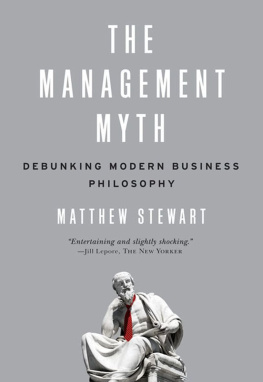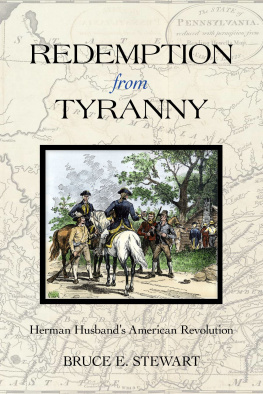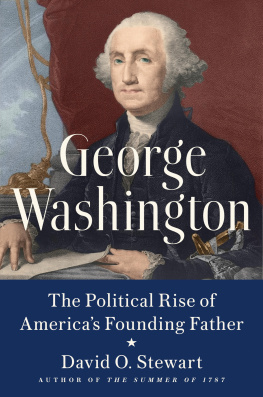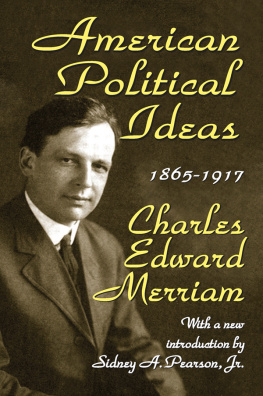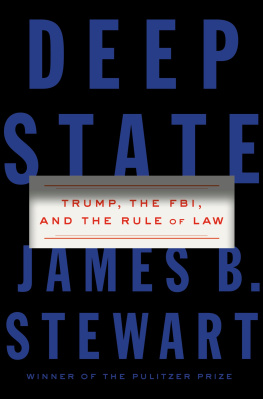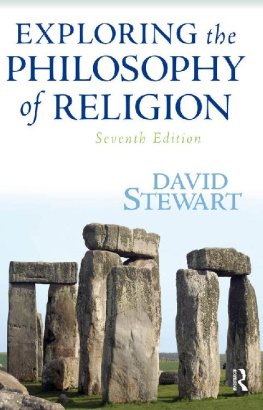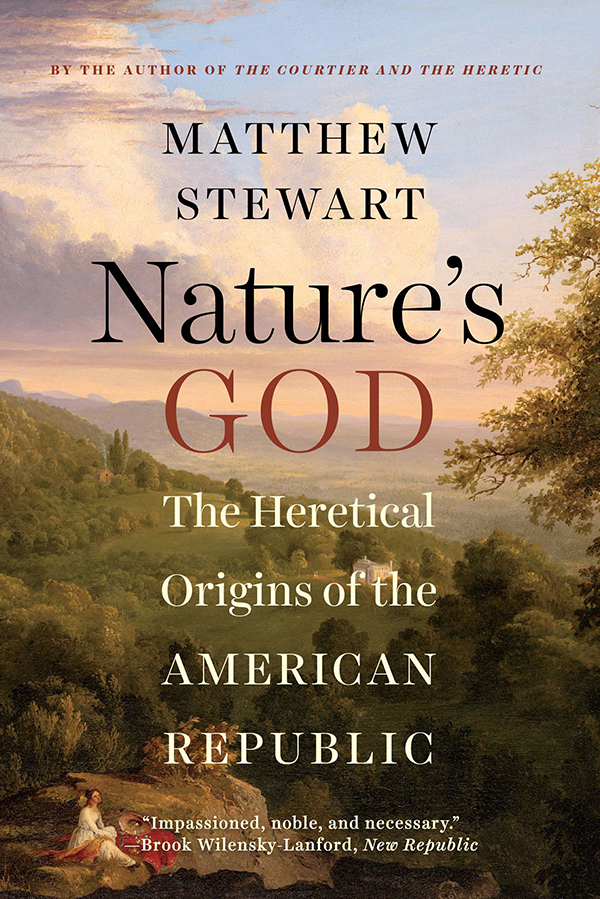
I would like to express my thanks and appreciation to the staff and fellows of the Dorothy and Lewis B. Cullman Center for Scholars and Writers at the New York Public Library, where I was the Gilder Lehrman Fellow in American History for 201011. I am also grateful to the following individuals for their insightful comments on and discussions of the project: Howard Burton, Charles Gillispie, Joseph Harvey, David Hinton, Wim Klever, Daniel Lakhdhir, Laura Rasmussen, Katherine Stewart, and William Warner. I owe special thanks to my editor at Norton, Alane Mason, and my agent, Andrew Stuart.
ALSO BY MATTHEW STEWART
The Management Myth
The Courtier and the Heretic
Monturiols Dream
The Truth About Everything
W HAT DOES IT MEAN TO BE AN AMERICAN? ARE SOME Americans more real than others? If so, then surely Ethan Allen should have counted as one of the most real of all Americans. He was raised on the roughest edge of the New England frontier, in the kind of settlement where the cabins were hacked straight out of the forest, where the people watered their rum with hard cider, and where every tub was expected to stand on its own bottom. He achieved fame and fleeting glimpses of wealth in the American way, by always keeping his eye on the main chance. He almost made it as an iron-manufacturing magnate before he almost made it as a real estate tycoon before he finally found his place in history as the leader of a peoples militia and the spiritual founder of the state of Vermont. Like the nation he helped to create, Ethan Allen was a rugged giant, enterprising and ambitious, supremely confident in his own abilities, and convinced of the rightness of his cause, whatever it happened to be.
As uprisings go, the squatters revolt in the Green Mountains that Allen led seems a distinctly American affair, a kind of prequel in miniature of the Revolution that followed. It featured hardy settlers, distant and oppressive overlords (in New York and New Hampshire in this case), an unimaginably fertile plot of land for the taking, and much talk about the unalienable rights of man and the consent of the governed. The talk may not have been as eloquent as what was soon to come from Philadelphia, but it was every bit as fierce in its demand for self-government. When the news about Lexington and Concord broke at the end of April 1775, the leader of the Green Mountain Boys raised his sights above the squabbling hills and, whatever other motives were at work in his busy mind, displayed something that his countrymen called patriotism and that we may describe simply as courage. It took courage to lead a pack of eighty-three hillbillies through the stony gates of Fort Ticonderoga on the dawn of May 10, 1775. It took courage of another sort when, face-to-face with the only woken officer of the Kings garrison, still in his pajamas, Allen supposedly demanded the surrender of the mightiest fort in North America in the name of the great Jehovah, and the Continental Congress
When the hero of Ticonderoga returned from thirty-two very hard months as Americas first celebrity prisoner of war, George Washington himself was there to welcome him back with honors. His fortitude and firmness seemed to have placed him out of the reach of misfortune. There is an original something about him that commands admiration, and his long captivity and sufferings have only served to increase, if possible, his enthusiastic Zeal, Washington told the Continental Congress. His spirit was essentially Western, and herein is his peculiar Americanism. And he lives on in the age of the shopping mall, in a certain way, as the archetypal hero of every spaghetti western and space adventure film. It seems only natural that in 1939 a pair of New York businessmen, looking for a moniker as American as the colonial-style furniture they were selling, decided to name their company after Ethan Allen, thereby giving millions of Americans the false impression that the prophet of Ticonderoga wasin an irony that the man himself would surely have appreciatedsome kind of revolutionary carpenter.
Yet Ethan Allen did something that real Americans dont customarily do. He wrote a book. Specifically, he wrote a philosophy book, a thoughtful, complicated, weirdly metaphysical, 477-page philosophy book. More to the point, the philosophy in his book involved a full-throttle assault on the Christian religion. Ethan being Ethan, the thing he finally stuffed between covers in 1784 was a lively affair. The full title gives some idea of the substance and the style: REASON THE ONLY ORACLE OF MAN, or a Compenduous [sic] System ofNaturalRELIGION. Alternately ADORNED with Confutations of a variety of DOCTRINES incompatible to it; Deduced from the most exalted Ideas which we are able to form of the DIVINE and Human CHARACTERS, AND FROM THE Universe in General. In the page headers and in his own correspondence, Allen chewed this mouthful down to The Oracles of Reason. Among the freethinking people of Vermont, it came to be known as Ethan Allens Bible.
Allen did not disguise the target of this philosophical pitchfork of a book. The pope hauls in twenty Millions Sterling pr annum, and the Protestant holy men pull down another ten million, he explained to a friend. In order to carry on this Priestcraft, the Clergy must invalidate the law of Nature, Reason is presented as Carnal, and depraved, and the natural State, a condition of mankind, to be damnable, to make way for their mysteries, insperations, and pious frauds, and thus most of the Human race, have been miserably Priest-ridden, he declaimed. To remedy the human species, from this Ghostly Tyranny, (as far as in me lay,) was the Object of my writing, the Oracles of Reason, an object worthy of Genl Allen, whatever his success may be.
Among the better sort of people in those times, there was a name for people like Ethan Allen: infidel. He denys the Being of a God and Denys that there is an Infernal Spirit existing, said one horrified Yorker. There was a more polite word for such wayward types at the time, too, and Allen himself used it in the preface of his book: In the circle of my acquaintance (which has not been small) I have generally been denominated a Deist, the reality of which I never disputed, being conscious I am no Christian, except mere infant baptism makes me one.
Allen struck everybody, including himself, as a man of action, separated at birth from the printed word by miles of muddy trails. But in the years after the war he seemed to become a man of the bookhis own book. In its pages, he confided to a friend, you read my very soul. He put everything on the lineand then borrowed some more. He mortgaged huge tracts of land along the shores of Lake Champlain to cover the cost of printing. Then he went to court and staved off creditors long enough to get the job done. Allen was a man who appreciated the value of a dollar; and yet there was something in him that demanded redemption through the printed word, something perhaps whose very existence might have seemed doubtful or unclear without the comforting reflection of reproducible type on paper. Even as he chased the grandest abstractions into a bewildering forest of arguments, dropping markers here and there in sentences that strayed far from their starting points, he never lost the conviction that this method of scribbling was the means to truth. No literary novelist ever suffered more from the vanity of writerly ambition, that longing to leave ones own time behind and enter into the conversation of the centuries. In his letters, just to make sure that the centuries got the point, he stopped calling himself a General and took to signing off instead as Ethan Allen, The Philosopher.
Next page


